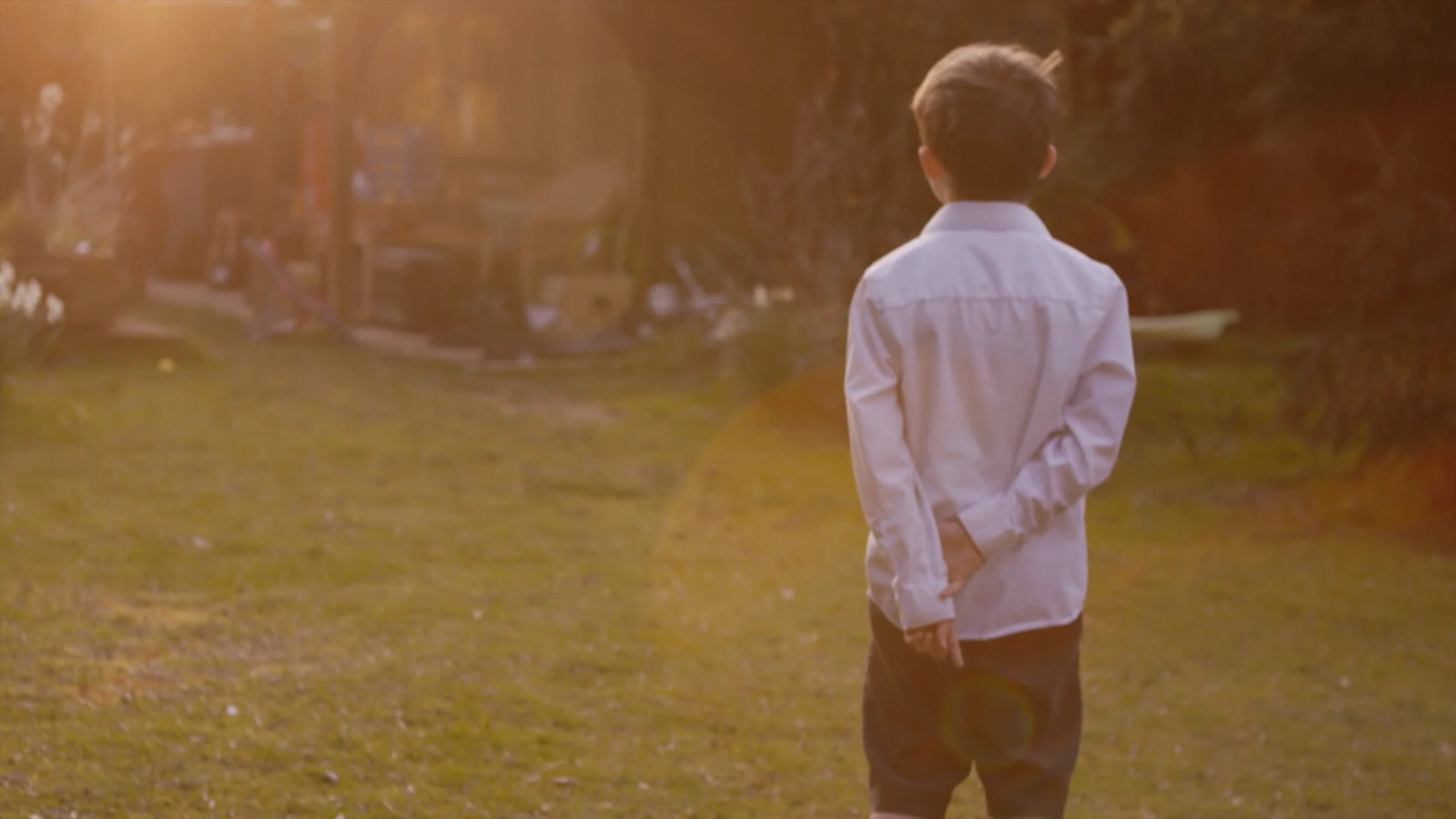A Space in Time
Riccardo Servini and Nick Taussig's remarkable, intimate documentary tells of the struggle of living with the muscle wasting disease Duchenne muscular dystrophy.
What we have here is a strong candidate for the title of best documentary released in 2021. That the film should be that good took me by surprise because its subject puts it in a category that I find rather off-putting. A Space in Time concerns the impact on a family of having two young children who are both diagnosed with Duchenne muscular dystrophy. Consequently, this film belongs to a well-established genre of documentaries, those dealing with a disabling or incurable disease. It's almost always the case that films of this kind are made with the very best of intentions, but all too often that cannot prevent them from coming across as inherently downbeat. For this reason, I usually find myself asking why people should choose to pay to see such a piece, albeit adding the proviso that viewers whose lives have in some way been touched by the disease in question may find benefit from seeing a sympathetic portrayal of others in conditions similar to what they themselves have known. Until now I have known only one film, the undervalued Nela - The Story of a Painter (1980), that has transcended what I regard as the limitations of the genre (that was a work in which Hans Conrad Fischer celebrated what became the last months of the life of his daughter who died aged 22 from leukaemia). Now with A Space in Time I can acclaim a comparable achievement since this film by Riccardo Servini and Nick Taussig is a triumph twice over.
First of all, I must praise the approach to the material. Co-director Nick Taussig and his wife Klara are the parents whose lives were transformed when their sons, Theo and Oskar, started to show signs of the muscle wasting disease that not only shortens life expectancy drastically but usually leads to the need of a wheelchair by the age of twelve and can involve breathing problems within another five years of that. While there is always hope that one day a cure for it will be found, that time has yet to come. However, the film shows that acceptance of living with Duchenne is important for all concerned including adopting as positive an attitude as possible with the aim of making the most of life regardless of the disease. Early on in A Space in Time, we find the Taussigs going to a new home where rebuilding work will create a house adapted to the current needs of the children and no less to future ones. This property also provides a rural setting that will in itself benefit them.
As all this shows the Taussigs are admirably practical and, while their deep love for Theo and Oskar immediately engages us, one warms to them even more over their brave decision to be entirely honest with the boys by not concealing what they will have to confront and by answering all their questions truthfully while remaining totally supportive. Their honesty extends to recognising in their comments to camera the pressures that such a situation can impose on parents. Indeed, it can be said that truthfulness is a major element in this film, a work that one also admires for its lack of self-pity and for avoiding the maudlin and the mawkish.
I should add here that as a film about Duchenne, A Space in Time is admirably structured in terms of the range of its material. Thus, although the main emphasis is on the Taussig family, we are introduced also to Jon Rey-Hastie who can speak as an adult who has the disease but has a positive outlook on his situation. In a further extension there is footage of Harrison Smith and his father Alex to provide at once a parallel and a variation in that Harrison is at eleven older than the Taussig boys but again somebody living with Duchenne. Bringing together contributions from these sources never overstrains the film but enriches it and it adds to the people on screen whom we come to admire. None of this makes the film other than heartbreaking, but it does gives A Space in Time a very positive and rewarding side.
To achieve that much would in itself makes this film remarkable but, as I have indicated, it is also a triumph on another level and that is to be found in its qualities as a piece of documentary filmmaking. Taussig is part of the film industry being a notable producer but here he partakes in directing for the first time sharing the credit with Riccardo Servini and their work is highly accomplished. It is Servini who is responsible for the editing which keeps the film nimble, while Rory Skeoch's colour photography is first class and at times displays a poetic quality that provides an uplifting touch without feeling inappropriate. Of note too is the excellently judged music score by Robin Schlochtermeier. These many qualities make this an admirable piece of work on a technical level but it is, of course, the human insight and sensitivity to be found here that carry the most weight. This is truly a remarkable film.
MANSEL STIMPSON
Featuring Nick Taussig, Klara Taussig Cecmanova, Theodor Taussig, Oskar Taussig, Luca Taussig, Harrison Smith, Alex Smith, Jon Rey-Hastie, Robert Bogdanski, Sara Caplan McCall, Peter McCall.
Dir Riccardo Servini and Nick Taussig, Pro Nick Taussig, Joshua Odigie, Paul Van Carter and Annabel Wigoder, Ph Rory Skeoch, Ed Riccardo Servini, Music Robin Schlochtermeier.
Salon Productions/Anima/Bohemia Media/Reservoir Docs-Bohemia Media.
88 mins. UK. 2020. Rel: 17 May 2021. Cert. 12A.


